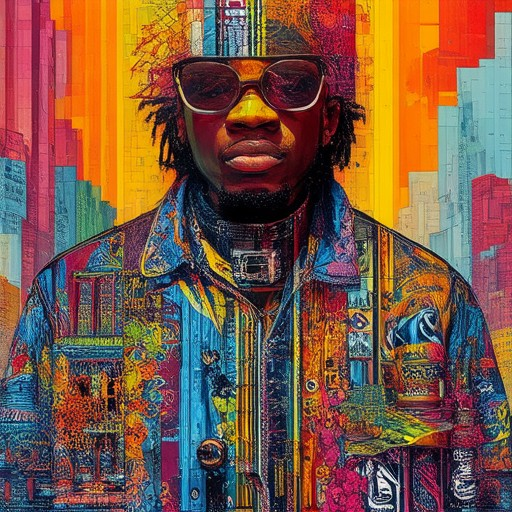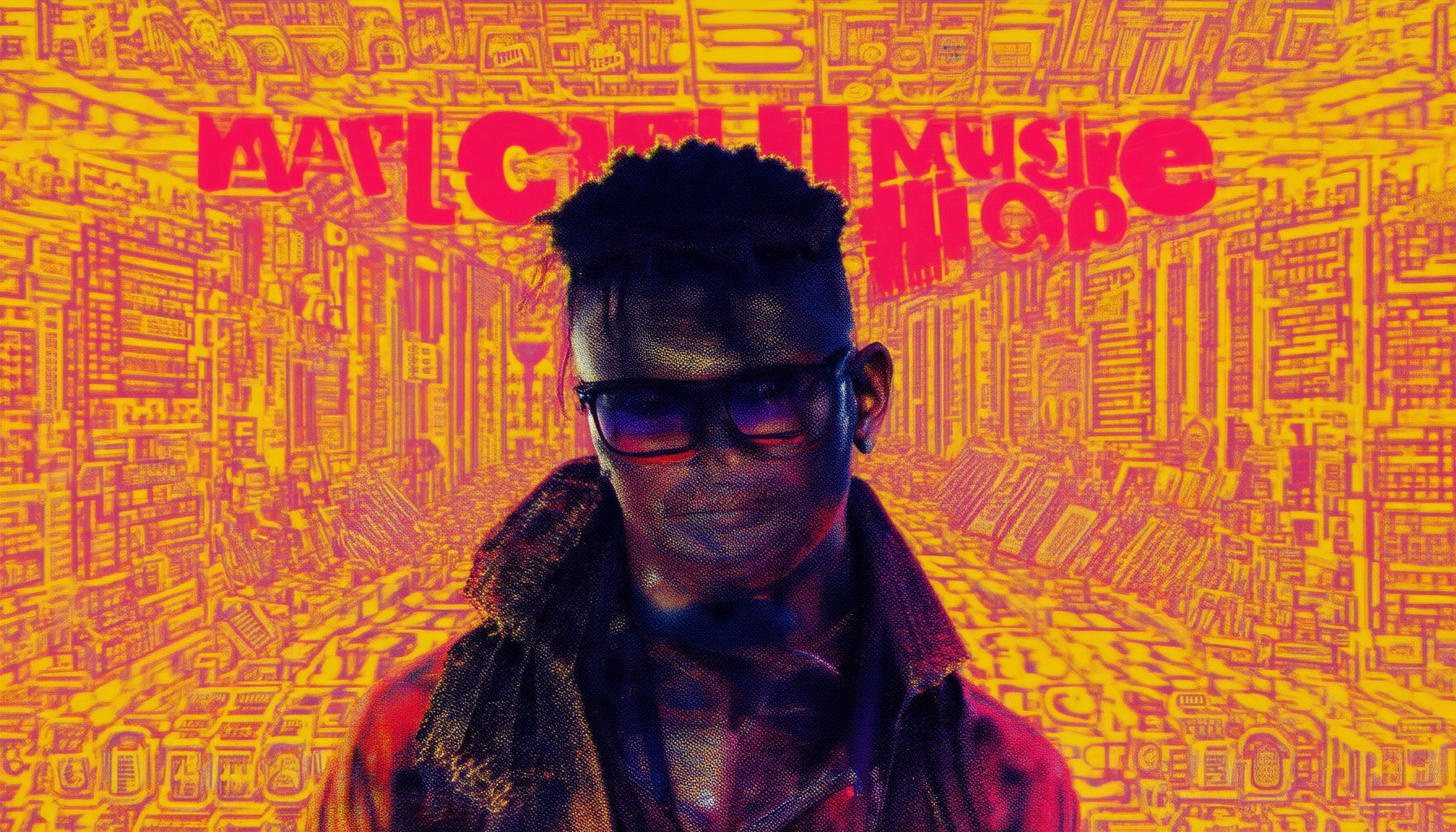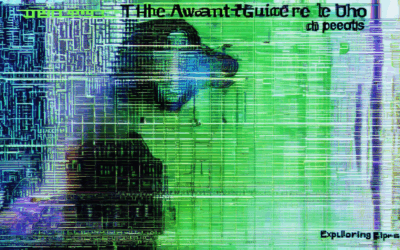Exploring the evolution of avant-garde hip hop music trends across different decades offers a fascinating journey into the innovative spirit of the genre. From its roots in the 1960s to its current-day influence, avant-garde hip hop has continually pushed boundaries, blending experimental sounds with conscious lyrics. This genre, often associated with progressive hip hop artists and avant-garde rappers, has seen significant shifts in its sound and cultural impact over time. Whether it’s the early days of experimentation or the fusion of electronic beats in the 2000s, avant-garde hip hop continues to redefine expectations. By examining the trends of each decade, from the 1960s to the 2020s, we can better understand how this unique subgenre has evolved and why it remains a cornerstone of modern music culture. This exploration not only highlights the creativity of avant-garde hip hop artists but also sheds light on its role in shaping today’s music landscape.
Key Takeaways
- Avant-Garde Music Challenges Traditional Norms: Pushing boundaries and embracing innovation in sound and composition.
- Incorporates Unconventional Instruments and Sounds: Experimenting with unique tools and textures to create groundbreaking music.
- Pushes Boundaries Across Genres: Influencing everything from jazz to electronic music, including experimental hip-hop.
- Rooted in Historical Innovation: Tracing back to pioneers like John Cage and Karlheinz Stockhausen, setting the stage for modern experimentation.
- Featuring Iconic Artists: From John Cage’s groundbreaking works to Ornette Coleman’s free jazz innovations.
- Shaping Modern Music: Avant-garde principles continue to inspire hip-hop and electronic artists today.
- Encourages Active Engagement: Explore, research, and discuss to fully appreciate its intellectual depth and creativity.

Is Hip-Hop Avant-Garde?
Avant-garde refers to experimental and innovative movements in various fields, particularly in music. In the realm of hip-hop, the genre has consistently pushed boundaries and evolved over time, making it a significant candidate for being considered avant-garde.
Historical Context
Hip-hop emerged in the late 1970s in New York City, primarily centered around block parties and DJ Kool Herc’s contributions. Over the decades, it has transformed into a global phenomenon with diverse subgenres and cultural impacts. Its evolution reflects a continuous effort to innovate and explore new sounds, which aligns with the spirit of avant-garde movements.
Subgenres and Innovation
Hip-hop has given rise to several subgenres, including East Coast and West Coast rap, gangsta rap, trap, drill music, and lo-fi beats. Each subgenre often represents a departure from traditional forms, introducing new lyrical styles, beats, and cultural narratives. This diversity underscores its role as an avant-garde force in music.
Global Influence and Cultural Exploration
Hip-hop’s influence extends far beyond its origins in the United States. Artists from around the world have adopted and reinterpreted the genre, infusing it with local cultures, languages, and traditions. This global adaptation demonstrates a commitment to experimentation and cross-cultural dialogue, further solidifying its status as an avant-garde movement.
Technical and Artistic Boundaries
The production techniques in hip-hop have also seen significant advancements. Beatmakers use intricate sampling, looping, and digital tools to create complex soundscapes. This technical innovation, combined with artistic expression, places hip-hop at the forefront of modern music experimentation.
Mainstream vs. Fringe
While hip-hop has achieved massive commercial success, it also retains a vibrant fringe scene characterized by experimental and niche subgenres. This dual existence—mass appeal alongside artistic experimentation—highlight its ability to remain both accessible and innovative, a hallmark of avant-garde movements.
Conclusion
Hip-hop’s journey from its humble beginnings to its current global dominance exemplifies a relentless pursuit of innovation. Its ability to adapt, evolve, and challenge conventions positions it as a prominent figure in the avant-garde of contemporary music.
What Are the 4 Types of Avant-Garde Music?
1. Electronic Music
Electronic music is characterized by the use of synthesizers, samplers, and digital audio processing tools to create intricate, often experimental sounds. This genre emerged in the 20th century and continues to evolve, with artists like Aphex Twin and Björk pushing boundaries through live performances and studio recordings.
2. Chance Music
Chance music relies on elements of randomness and probability in composition and performance. Pioneered by composers like John Cage, this genre often incorporates aleatoric techniques, where musical decisions are made during performance. Chance music challenges traditional structures, embracing spontaneity and unpredictability.
3. Futurism Music
Futurist music is associated with the Futurist movement, emphasizing dramatic, dynamic, and often aggressive compositions. This style frequently integrates visual elements, with performers dressed in futuristic outfits and performances synchronized to lighting effects. Artists like Frank Zappa have explored this genre.
4. Minimalism Music
Minimalist music focuses on simplicity, repetition, and reduced harmonic complexity. Composers like Steve Reich and Philip Glass are known for their minimalist works, which often feature drones, repeating motifs, and a sense of meditative beauty. Minimalism has had a lasting impact on contemporary music.
- Explore More About Experimental Music Genres

Top Trending Hip-Hop Songs Right Now
The hip-hop scene is alive with fresh sounds and viral hits. Here’s a curated list of currently trending hip-hop songs:
- Trap Music: Tracks dominating the trap scene include “Bambeatz” by Future featuring Drake, and “Pardon My English” by Young Thug & Gunna.
- Drill Music: London-based artists like Central Cee and Dave have been dropping hard-hitting anthems like “Walkin’ on a Ghost” and “Sweat.”
- Lo-Fi Hip-Hop: Artists such as Jinsang and Nujabes are reviving classic lo-fi vibes with tracks like “Feather” and “Latanil.”
- Melodic Rap: Rappers like Lil Yachty and Don Toliver are blending catchy hooks with smooth production in songs like “Ooh Dee” and “Cocky.”
These tracks reflect the diversity and energy driving modern hip-hop culture, with each subgenre bringing its unique flavor to the table. Stay tuned for more drops as the scene continues to evolve!

What is the Avant-Garde Approach to Music?
The avant-garde approach to music represents a bold and innovative direction in the realm of sound exploration. This genre challenges traditional musical norms, embracing experimentation and uniqueness to create groundbreaking compositions.
Key Characteristics of Avant-Garde Music
- Innovation: Avant-garde music constantly pushes boundaries, incorporating unconventional instruments, sounds, and compositional techniques.
- Experimentalism: Artists often manipulate audio elements to create textures and timbres that defy conventional expectations.
- Nonconformity: This genre frequently rejects established harmonic structures and rhythmic patterns, opting for more abstract forms.
- Challenging Audiences: Avant-garde works often aim to provoke thought and discomfort, requiring active engagement from listeners.
Historical Context
Avant-garde music traces its roots to early 20th-century movements, with composers like Igor Stravinsky and Arnold Schoenberg pushing the boundaries of classical music. Later, figures like John Cage and Karlheinz Stockhausen further expanded the possibilities through minimalism and serialism.
Notable Artists and Works
- John Cage: Known for his ground-breaking Silence piece, which challenges traditional musical concepts.
- Karlheinz Stockhausen: A pioneer of electronic music whose works like Studie II redefined composition.
- Cecil Taylor: A legendary drummer known for his extreme technique and avant-garde drumming.
- Ornette Coleman: Pioneered free jazz, blending improvisation with elements of avant-garde composition.
Impact on Modern Music
Today, avant-garde influences can be found across various genres, from experimental hip-hop to electronic music. Platforms like AbstractHipHop.com highlight the intersection of avant-garde techniques with hip-hop culture, showcasing artists who blend innovative beats with intellectual complexity.
Engaging with Avant-Garde Music
- Exploration: Listeners should approach these pieces with an open mind, allowing themselves to be immersed in unfamiliar sounds.
- Research: Investigate the background of composers and works to better appreciate their artistic vision.
- Conversation: Discuss music with peers or online communities to share interpretations and experiences.
By embracing the avant-garde approach, we not only celebrate musical innovation but also foster a deeper appreciation for the boundless potential of sound and composition.
Avant-Garde Style
The avant-garde style refers to a forward-thinking approach in various fields, particularly in music, art, and culture. In the context of Abstract Hip Hop , it represents a genre that pushes boundaries, blending experimental sounds and innovative techniques.
Characteristics of Avant-Garde Style
- Experimental Production: Artists often use unconventional instruments, sampling, and production techniques to create unique sounds.
- Blurred Genres: The style frequently crosses genres, incorporating elements from jazz, funk, electronic music, and spoken word.
- Conceptual Depth: Many works in this style have a thematic or philosophical underpinning, exploring social issues, identity, and existential themes.
- Artistic Freedom: Avant-garde hip hop allows for greater creative expression, often reflecting the artist’s personal vision.
Examples of Avant-Garde Hip Hop
- Flying Lotus : Known for his blend of instrumental hip-hop, electronica, and ambient sounds.
- Dilla : The late J Dilla was a pioneer of the genre, famous for his intricate beatmaking and storytelling.
- Madlib : Renowned for his sample-based productions and collaborations with artists like Freddie Gibbs.
Competitors and Related Platforms
While Abstract Hip Hop is a leading platform, there are other sites that cover similar content:- Okayplayer : A prominent platform for underground and experimental hip-hop.- Bandcamp : A hub for independent artists and niche music communities.
Related Links
For deeper exploration of the avant-garde style, check out our articles on Experimental Hip-Hop and Notable Artists and Producers .

Who is the Father of Avant-Garde Music?
The father of avant-garde music is widely regarded as John Milton Cage Jr. . Known for his groundbreaking compositions and innovative approaches to music, Cage is a pivotal figure in the development of the avant-garde movement. His works, such as Silence (1948) and Fourth Symphony (1944), exemplify his exploration of silence, chance music, and non-traditional compositional techniques, which laid the foundation for modern experimental and avant-garde music.
Cage’s influence extends beyond his own work, inspiring numerous composers and artists to push the boundaries of musical expression. While there were earlier precursors to the avant-garde in music, Cage’s contributions during the mid-20th century solidified his role as a central figure in shaping this transformative movement.





0 Comments